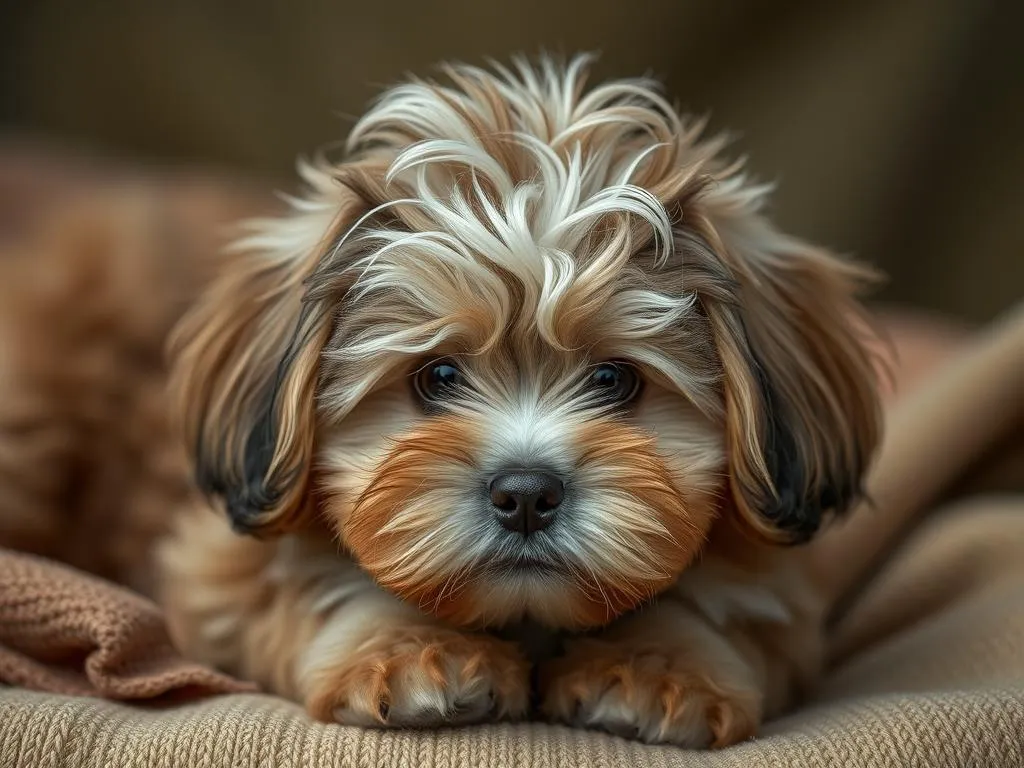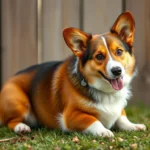
Introduction
Dog breeds vary immensely, offering a rich tapestry of traits, behaviors, and characteristics that make each one unique. Understanding these differences is crucial for potential dog owners, helping them find a furry companion that fits their lifestyle and family dynamics. Among the numerous breeds available, the Cavachon has surged in popularity, captivating pet lovers with its charming demeanor and delightful looks.
The Cavachon is a crossbreed resulting from the combination of the Cavalier King Charles Spaniel and the Bichon Frise. This breed has gained a loyal following due to its affectionate nature and manageable size, making it ideal for families, singles, and seniors alike. In this article, we’ll delve deeper into the characteristics, care needs, and unique qualities of the Cavachon, providing insights for anyone considering this lovable breed.
Understanding Dog Breeds
What is a Dog Breed?
A dog breed refers to a specific group of domesticated dogs that share common characteristics, appearance, and behaviors. These breeds are classified based on various criteria, including size, coat type, and temperament. The historical context of dog breeding dates back thousands of years, where selective breeding was utilized to develop dogs for specific tasks such as herding, hunting, or companionship.
Importance of Choosing the Right Breed
Selecting the right dog breed is essential for a harmonious household. Factors to consider include:
- Lifestyle: Active individuals may prefer energetic breeds, while those with a quieter lifestyle might enjoy a more laid-back companion.
- Space: Large breeds often require more room to roam, whereas smaller breeds can thrive in apartments.
- Family Dynamics: Families with young children may benefit from breeds known for their patience and playful nature.
Understanding the behavioral traits of different breeds can significantly impact the overall care and well-being of the dog.
Overview of the Cavachon Breed
History of the Cavachon
The Cavachon is a relatively new breed, emerging in the late 20th century as part of the designer dog trend. Breeders aimed to create a friendly companion that combined the best traits of the Cavalier King Charles Spaniel—known for its gentle nature—and the Bichon Frise, celebrated for its playful spirit. This fusion has resulted in a dog that is not only affectionate but also well-suited for various living situations and lifestyles.
Physical Characteristics
The Cavachon is a small to medium-sized dog, typically weighing between 10 to 20 pounds. They usually stand about 12 to 13 inches tall at the shoulder. Their coats can vary, but they often feature a soft, wavy texture that may come in various colors, including:
- White
- Apricot
- Cream
- Tan
Some Cavachons may also exhibit markings similar to their Cavalier parents, such as patches of color on a predominantly white coat.
Temperament and Personality
Known for their friendly disposition, Cavachons are typically affectionate, social, and intelligent. They thrive on human interaction and are generally good with children and other pets. Compared to their parent breeds, Cavachons often exhibit a balanced temperament, combining the Cavalier’s gentle nature with the Bichon’s playful spirit. This blend makes them an excellent choice for families and individuals alike.
Care and Maintenance of Cavachons
Grooming Needs
The grooming requirements for Cavachons are relatively moderate. Their coat, while adorable, requires regular maintenance to prevent matting and tangles. It’s recommended to brush their fur at least two to three times a week. Additionally, they may need professional grooming every few months, depending on the coat type.
Regular grooming not only keeps their coat looking its best but also helps maintain overall health. It allows for early detection of skin issues and promotes bonding time between the dog and its owner.
Nutrition Requirements
A balanced diet is crucial for the health of Cavachons. Owners should select high-quality dog food that meets the nutritional needs of small to medium-sized breeds. Generally, a mix of protein, healthy fats, carbohydrates, vitamins, and minerals is essential.
Feeding guidelines typically suggest splitting meals into two servings per day to help manage their energy levels and prevent obesity. Owners should also monitor for common dietary issues, such as food allergies or sensitivities, which can manifest as skin irritations or gastrointestinal disturbances.
Exercise and Activity Levels
Despite their small size, Cavachons require regular exercise to maintain a healthy lifestyle. Daily walks, playtime, and mental stimulation through interactive toys or training sessions are vital. About 30 minutes of activity each day is generally sufficient to keep them happy and healthy.
Activities such as fetch or agility courses can be particularly enjoyable for Cavachons. Their playful nature means they often excel in interactive play, providing ample opportunities for bonding with their owners.
Health Considerations
Common Health Issues in Cavachons
While Cavachons are generally healthy, they may be predisposed to certain genetic health issues inherited from their parent breeds. Common concerns include:
- Heart Issues: As with Cavalier King Charles Spaniels, heart problems can occur, particularly mitral valve disease.
- Ear Infections: The floppy ears of Cavachons may be susceptible to infections if not properly maintained.
- Eye Conditions: Conditions like cataracts or dry eye can also be seen in this breed.
Regular veterinary check-ups and preventative care can help manage these risks, ensuring a longer, healthier life for your Cavachon.
Lifespan and Aging
The average lifespan of a Cavachon ranges from 12 to 15 years. As they age, their needs may change, requiring adjustments in diet, exercise, and care routines. Providing joint supplements, maintaining dental hygiene, and ensuring regular veterinary visits become increasingly important in their senior years.
Training and Socialization
Basic Training Techniques
Training a Cavachon can be a delightful experience, as they are generally eager to please and intelligent. Effective training methods include positive reinforcement techniques, such as treats and praise. Starting training early and exposing them to various environments and experiences can significantly benefit their behavior and social skills.
Socialization, particularly during the puppy stage, is crucial. Introducing your Cavachon to different people, pets, and situations will help them develop into well-rounded adults.
Behavioral Challenges
While Cavachons are typically well-behaved, they can exhibit some common behavioral challenges. Separation anxiety may arise if they are left alone for extended periods, given their social nature. To mitigate this, gradually acclimating them to alone time and providing engaging toys can help ease their anxiety.
Other potential issues may include barking or stubbornness during training. Consistent training methods and patience are key to addressing these challenges effectively.
Finding the Right Cavachon
Choosing a Reputable Breeder
When considering a Cavachon, it’s vital to choose a responsible breeder. Look for breeders who prioritize the health and temperament of their dogs over profit. Questions to ask include:
- What health tests have been conducted on the parent breeds?
- Can you see the puppies’ living conditions?
- How are the puppies socialized before adoption?
A reputable breeder will be open and transparent, providing you with the necessary information to make an informed decision.
Adoption Options
Adopting a Cavachon from shelters or rescue organizations is another option worth considering. Many dogs in need of homes are waiting for loving families, and adopting can be a fulfilling experience. Whether through a rescue specializing in designer breeds or local shelters, adopting a Cavachon can provide a second chance for a deserving pet.
Conclusion
In summary, the Cavachon is a delightful breed that combines the best traits of its parent breeds, making it an appealing choice for many dog lovers. With their affectionate nature, manageable grooming needs, and moderate exercise requirements, these dogs can adapt to various living situations.
Understanding their care needs, potential health issues, and the importance of training and socialization is essential for a fulfilling companionship. As you contemplate adding a Cavachon to your family, consider your lifestyle and preferences to ensure a harmonious and joyful experience with your new furry friend.
FAQs
Are Cavachons hypoallergenic?
While no dog is entirely hypoallergenic, Cavachons are often considered more suitable for allergy sufferers due to their low-shedding coats. However, individual reactions may vary.
How do Cavachons fare in homes with children?
Cavachons are generally good with children. Their playful and gentle nature makes them a great companion for kids, provided they are taught to handle the dog with care.
What is the cost of a Cavachon?
The cost of a Cavachon can vary widely, typically ranging from $1,000 to $3,000, depending on the breeder, location, and lineage of the puppy. Adopting from a shelter may offer a more budget-friendly option.









